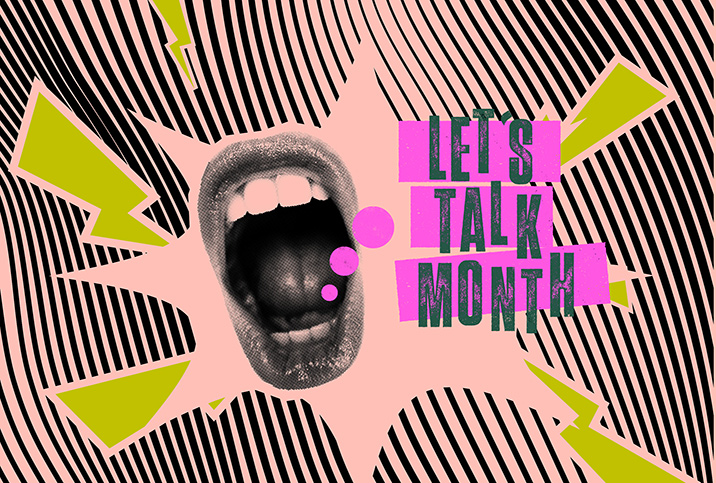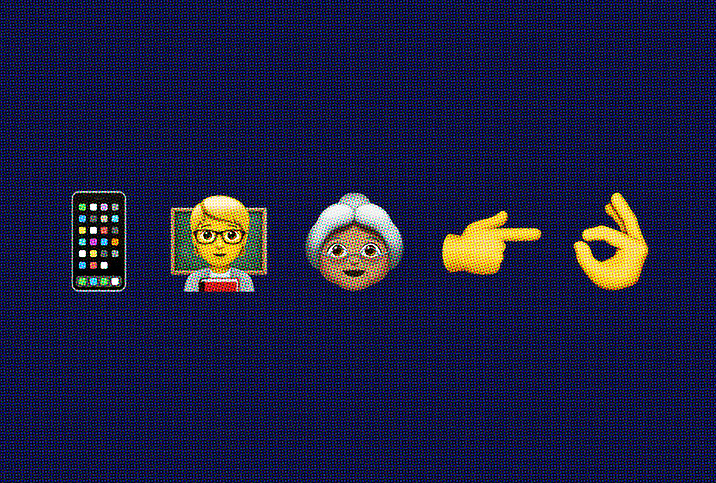Why Are Americans So Uneasy About Parental Nudity?

Beyond the occasional shared bath, parental nudity in front of children is a sensitive subject in the United States. For many, certain body parts are rarely talked about, let alone exhibited, even in the comfort of one’s home.
But the bodily hang-ups experienced in U.S. families aren’t shared by many cultures around the world. It’s common to get naked with your in-laws in some parts of Europe, for example, while entire communities interact nude in South America.
So how did Americans become so never-nude? While prudishness is partially tethered to the country’s Puritan, sexually repressed roots, there’s more at play here than meets the eye.
The evolution of modesty
While it’s difficult to find evidence as to why humans began clothing themselves beyond the desire to stay warm, some evolutionary psychologists think early humans developed modesty to enhance social cohesion. "You could keep the social peace better if women were covered up," said evolutionary psychologist Diana Fleischman, Ph.D. "But men covered up to obscure their [physical] flaws from other people. Then it became a civilized thing to do because you don’t want to be judging people based on their muscles or the way their breasts look or their asymmetries.”
Fleischman, who’s of German and Portuguese descent, grew up with a familial openness to nudity. She feels American culture misses out on the deepening of relationships by viewing nudity with such distaste. “In so many cultures, hanging out naked is a way of social bonding,” she continued. “If you’re all naked together, there’s a certain wall that falls down.”
The practice is historically common in certain Native cultures such as Nigeria and Brazil in which partial or full nudity is the daily norm, as well as some countries in Europe—Norwegian families often strip down to enjoy a communal jacuzzi, for example.
Nudity vs. eroticism
As a parent, bathing with a young child is normal. But more modesty-minded individuals argue that further exposure to adult nudity can traumatize a child. After a Huffington Post article went viral that discussed a woman’s pro-nude attitude in raising her four sons, she received a tidal wave of hateful emails and angry tweets accusing her of child molestation and sexualizing her kids.
This conflation of nudity with sexual activity reveals a source of the stigma: Onlookers may be quick to equate parent-child nudity with sexual abuse, and when the parent is the opposite sex to the child, discomfort heightens.
Child psychiatrist Lea Lis said this attitude betrays a doubt that adults would be able to control themselves sexually in a nude scenario, even with their kids—but sadly, clothing is unlikely to be the deciding factor if a child is at risk of sexual abuse.
“If you’re a pervert, a feeble-minded sexual abuser, that’s not going to change whether there are clothes on or not,” she noted.
Legal troubles
Parents or other relatives who get nude around children may even run into legal difficulties. Dean Tong, a certified child forensic interviewer who specializes in false allegations of abuse, noted that while the practice might be harmless, it’s possible that a child could raise red flags just by mentioning the parental nudity to teachers or counselors.
"Mandated reporters are required by law to report any reasonable suspicion of child abuse, and most professionals will err on the side of child protection, not parental protection," Tong said. “In my state of Florida, it would be subjective discretion by a police officer, sex crimes detective and prosecutor to arrest and charge the accused parent with lewd and lascivious conduct for exhibitionism."
Age matters here, Tong added. At age 7 or 8, children reach what’s called the age of psychological reason at which they begin to understand right from wrong, truth from lie and good touch from bad touch. Kids this age or older are usually able to bathe themselves without assistance, which isn’t the case for younger children, who are in what Tong referred to as the “kiddie stage.”
“I would say 99 percent of lay Americans, I think they can understand [bathing with a younger child] and have probably done it themselves,” he said. “But when you’re getting up to age 8 or 9, people would start scratching their heads.”
He provided an example of a criminal case involving a grandfather who was arrested after bathing with his 8-year-old granddaughter. “In my professional judgment, [he] crossed a line,” Tong said. “That should’ve stopped when the kid was 4 or 5. Certainly, when the jury gets wind of that, that can be legal suicide, but that’s up to the jury. Where there’s smoke, there’s fire in these cases.”
Where is the line on parental nudity?
When it comes to deciding when to cover up around a child, the key word here is "uncomfortable," Tong said. When a child lets on that they’re no longer OK with seeing a parent nude, that’s when the parent should stop.
Lis says people often ask her at what age is it no longer appropriate to be naked around your kids, and her reply echoes Tong’s sentiment: Follow the child’s lead.
"As a teenager, your kid’s naturally not going to want to get naked with you," she said. "That’s pretty normal because they’re going through their journey and they want their privacy, which should be expected."
For shame
Puritanical attitudes to sex, where even lustful thoughts are considered sinful, are prevalent in many American communities—and because this attitude tethers nudity to sex, shame gets cast on the naked body. By implying that nakedness is wrong, or avoiding nudity altogether, parents run the risk of seeding shame in a child’s mind. This can lead not only to bodily hang-ups but sexual ones, too.
Lis believes the key to decoupling nudity and sex is more exposure.
“Of course nudity is sexualized,” Fleischman said. “But ankles or hairlines are sexualized in places where you don’t see them. It’s only because we don’t see nude bodies that they’re sexualized.”
While opinions vary as to whether children should be allowed to see strangers naked, taking a young boy to a topless beach, for example, might help him learn that naked female bodies can be desexualized.
"Seeing all these naked women and knowing that this is not erotic, he’s not allowed to touch them, is a very empowering message for a boy," Lis said. It can also spark important conversations around boundaries and consent. “They [learn] you can be naked with adults or kids who don’t sexualize nudity. They can actually realize there’s a difference and not confuse the two in their mind."


















